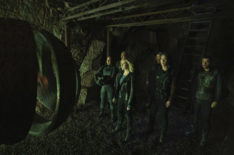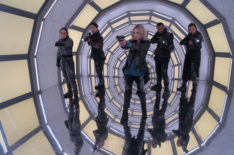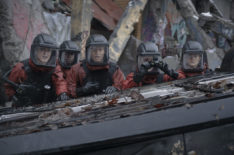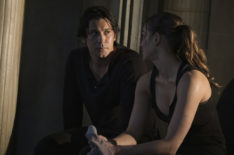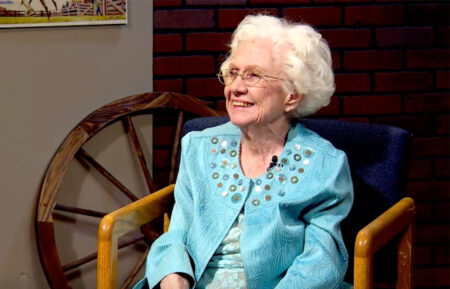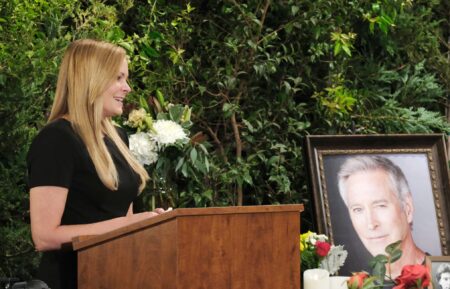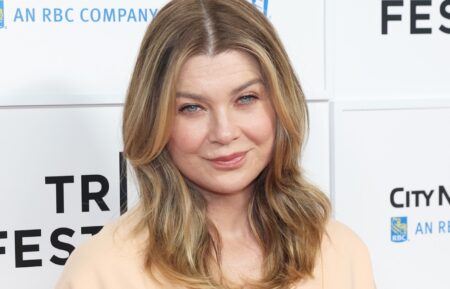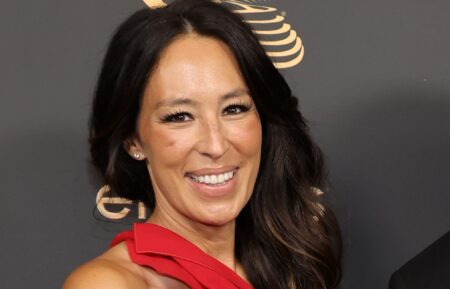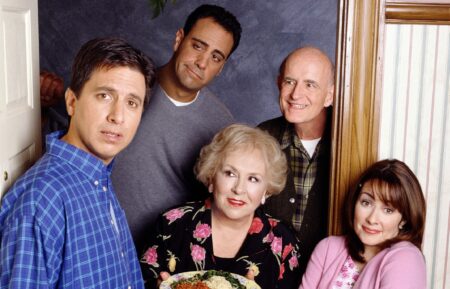‘The 100’ Star JR Bourne Talks the ‘Twisted’ Humanity of Sheidheda
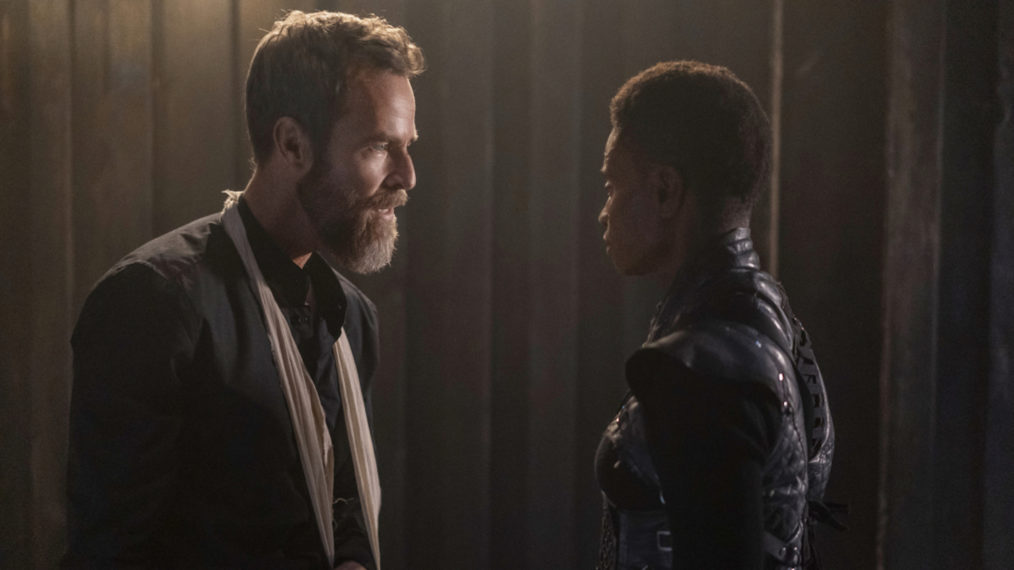
Q&A
No one on Season 7 of The 100 is having a very good time: Well, no one except the villainous Sheidheda (JR Bourne). When you think about it, the Dark Commander’s really the only character who’s had any measure of success — and, to the detriment of our heroes, he keeps on winning.
He’s gained control of Russell’s body, managed to fool the faithful into believing he was their rightful leader before killing them all, and he seems to be one — if not several — steps ahead of everyone, at all times. As if that wasn’t enough, he’s even had time to play a few games of chess and chow down on some quality baked goods. Yeah, life’s OK if you’re the Dark Commander.
We chatted with JR Bourne about what it was like to play multiple characters on the show, how chocolate chip cookies brought out shades of humanity in Sheidheda and what to expect from the series finale.
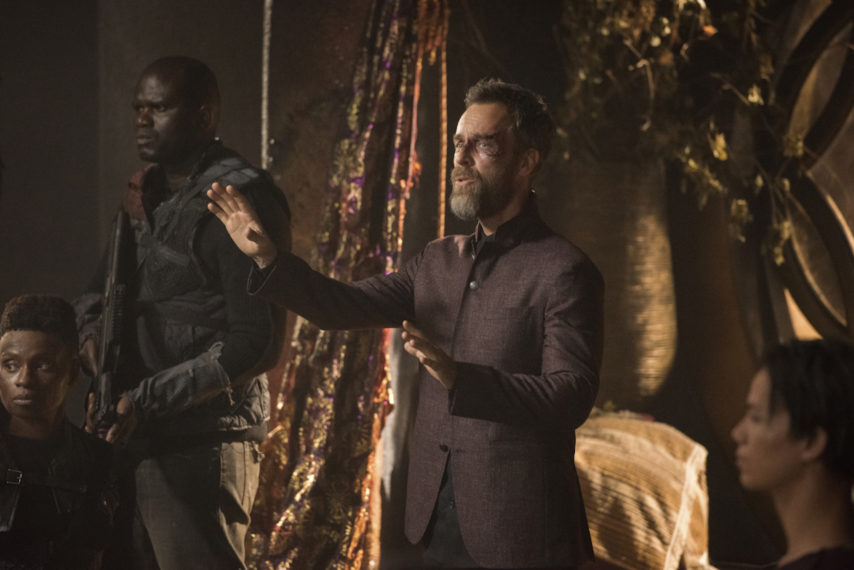
So, you started last season playing Russell and ended up playing Sheidheda. Did you know from the start that you’d be playing two characters?
JR Bourne: No, not from the start. About midway through Season 6, Jason had me in for a little meeting, and we discussed it. And I was like, “Yes, please!”
Oh, OK! Did you ever sit in on scenes with the other actor who played Sheidheda to get the mannerisms down? How did that evolve?
No, I didn’t sit in. I had seen Dakota (Daulby) on set at times, but once I finished Season 6 and was getting ready to go into Season 7, I went back and watched all the scenes he had done with Madi, just to refresh my memory. But Jason and Kim, at our sit-down prior to starting Season 7, said, “Absolutely take from that to inform your Sheidheda, but we want you to bring your Sheidheda to life. To be who he is in this body, as you’re playing it.”
So they gave me that, and I really appreciated it. I thought it was a nice marriage between the two. I always saw Dakota’s Sheidheda as the man who’d been stuck in that place for as long as he had been, and the frustration of trying to get Madi to do his will, and mine was the Sheidheda who was succeeding, up until this point. As soon as he got into that body, he’s a cocky son of a b**ch, and he knew he could start his game.
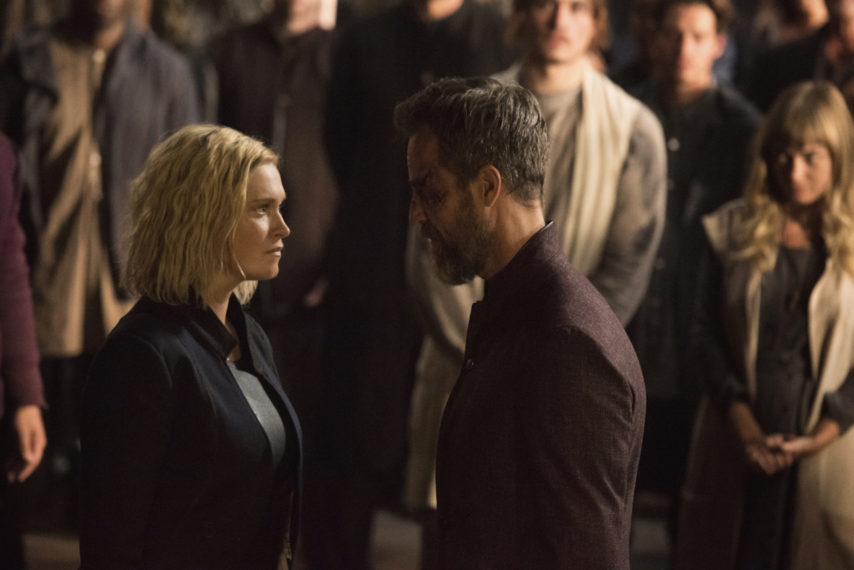
The thing that strikes me is that he always seems — not quite joyful, but energetic. So, this is a triumphant Sheidheda, that you’re playing.
Oh, I love that. That’s a great observation, and I think it ties in exactly to what I’m saying. He feels energized, absolutely. He’s not stuck in a mind space. He doesn’t have to fight to take over someone’s body or to make them do his will. He’s there. He’s got limbs and fingers and feet, and he’s in control. So that’s a great way to describe him.
You’ve played so many dimensions or shades of different characters on the show. You’ve played Russell, then you’ve played Sheidheda playing Russell. How did you differentiate Sheid-Russell from real Russell?
I made the choice that Sheidheda wasn’t familiar with Russell the way he was with Madi, or the way he was with Indra, or the way he was with Gaia. He’s familiar with those people, and as disconnected as the relationship might’ve been, he was aware of who they were. He wasn’t, with Russell. He didn’t know who this person was, or how he walked or how he talked. He had his book, and he studied the s**t out of that thing. But I made the choice that his impersonating Russell was a very judgmental opinion of what this apparent god was, and how he would behave and how he would speak to his followers. He is the colorful Russell of Sheidheda, who is full of judgment, and that’s how I portrayed that.
We know Sheidheda finds value in a good opponent, in fighting or in chess. Is there anyone in Sanctum that he respects?
Indra. I think Sheidheda has a completely demented and misaligned view of love and companionship, and even of support. But the idea of what a respected warrior is, the idea of a worthy opponent? That’s Indra. He would take joy in killing her, but if he could absolutely decide, she’d be the last person he’d do that to.
She’s also the reminder of when he was in his glory. She’s the child who carries the weight of what he did to her clan and what he did to her parents, and there’s something twisted in him to see that in the grown version. He also takes a kind of parenting vision, of, “look how strong she is because of what I put her through as a child.” That’s his demented way of seeing things, but he has a tremendous amount of respect for the warrior that she is. As frustrated as he gets with her and that they follow this red-blooded person, it still is, “Yeah, but they follow [her]. What?!”
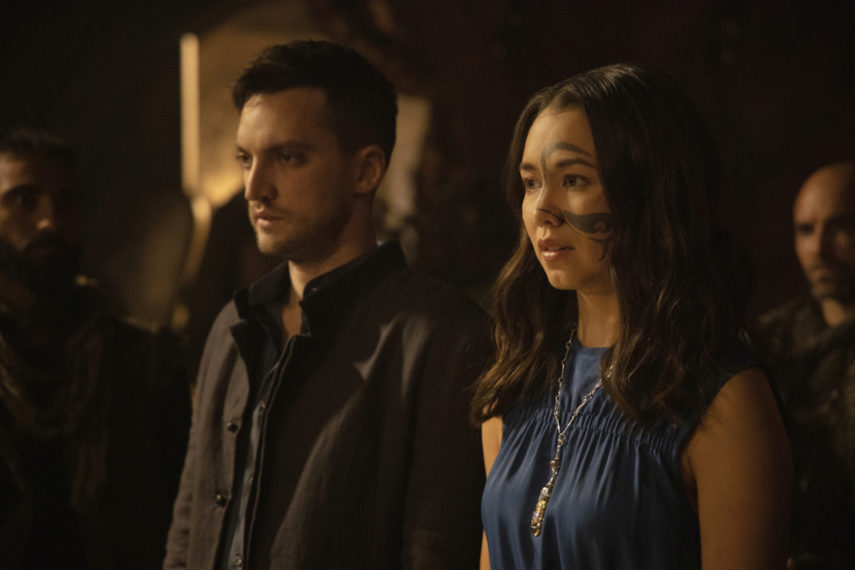
I also wanted to ask you about Sheidheda and Murphy, because I just loved that chess scene between the two of them. What do you have to say about their dynamic?
I loved working with Richard, I loved prepping for that, I loved shooting that. That was a highlight in my career, I’ve got to say, because we had such a good time.
He has a degree of respect for him as well. Not just because they are our heroes, but because he sees the way they function and the way they work. He sees a little challenge, like, “Can I manipulate this one?” Because you know, Murphy, he’s the cockroach. There is something that he absolutely respects there as well. Not to the same degree as Indra, but — I think he enjoys it more than he respects it.
You always look like you’re having so much fun in your scenes. There’s such an energy to them that’s made Sheidheda a blast to watch. What did you enjoy most about playing him?
His freedom. Up to the point where the chip got taken out, I think he had an eye on the larger, grand picture or goal. Once the chip got taken out, he decided, “If I have this amount of time, I’ll deal with that later. But first, let me gain this power and support so I can be commander again — and let me have fun doing it.” Enjoying every moment like it could be his last, I think, is what he’s doing.
I’ve noticed Sheidheda seems fond of chocolate chip cookies. I’ve gotta know — does the Dark Commander have a weakness for baked goods?
[Laughs] Oh, that’s a great question. He definitely took joy in that taste. I think when he first took over Russell’s body in episode 1, there was a moment of, “Oh yeah, that’s right. This taste.” Not only is he enjoying the manipulation and the success of it, but he’s also allowing himself that human memory, which is something we never really got into with Sheidheda. If he was the lead of the series and the story was about Sheidheda, those are all things I would love to explore. What part of humanity does he still carry? He was a child. He was born. He did have parents. Where are those things, within his body? I think that enjoyment you see of him eating the cookie is a little, tiny sliver of that that’s still present. He’s just done a good job of squashing it all down and covering it.
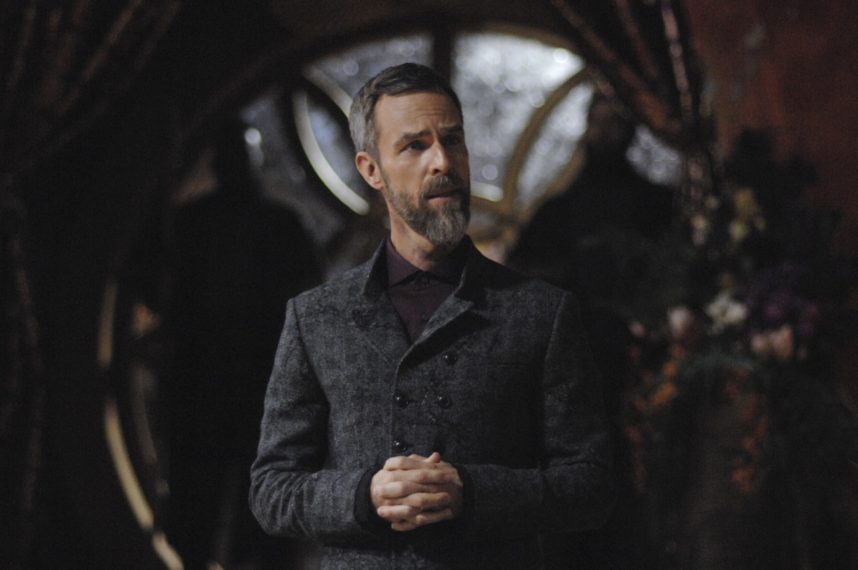
That leads perfectly into my next question. I was thinking about Russell — that there were elements of humanity or something barely redeemable about him; you could at least understand why he did what he did. Do you see any similar sympathetic elements in Sheidheda?
That’s a great question. Throughout the whole season, I could never just treat him as purely evil. I always saw that “kneeling or dying” as him creating his family. When Murphy says that Lexa brought the clans together, and it was his desire to do that — again, he pushed all that down, and pushed it down, and pushed it down. But again, his desire for family and community was so twisted and warped within his brain. And that started when he was very young and being sent to the Conclave by his mother. His view of family and community became misaligned, misinformed.
I know you probably can’t tell me much about the end of the show, but if you had to describe the ending as a food, what food would it be?
As a food? Oh, amazing. Oh, wow. I’m going to say lasagna. Because it’s perfectly layered with every morsel of taste and flavor, and it’s been cooked perfectly. And you know what? It’s day-old lasagna. It’s the next-day lasagna. All those flavors and all those ingredients have been simmering overnight in the fridge, and they’re all perfectly melded together, and it is success. It’s perfect.
The 100, Wednesdays, 8/7c, The CW
From TV Guide Magazine
Behind the Scenes With Gordon Ramsay: 20 Years of Cooking Up TV Hits
The celebrity chef reflects on redefining culinary television and his fiery journey Hell’s Kitchen to Secret Service. Read the story now on TV Insider.

